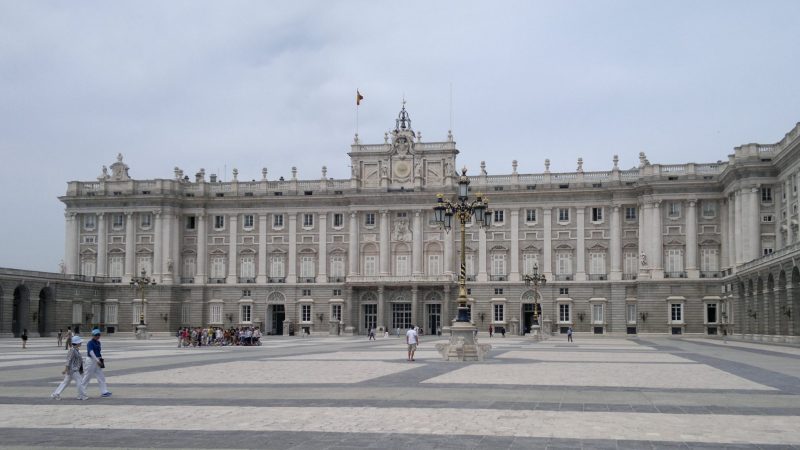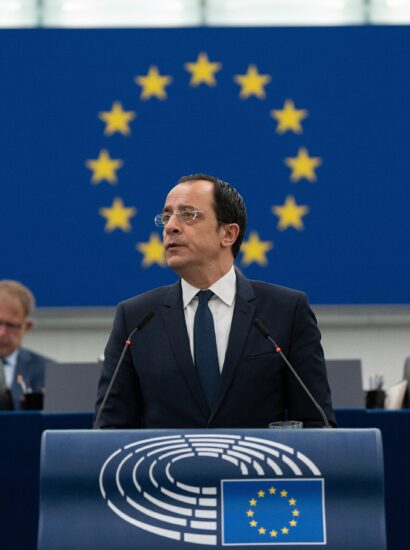On July 23, 2023, general elections were held in Spain for both the Congress and the Senate. These elections were held on this date because Pedro Sánchez, the current President of the Spanish Government, brought them forward after the socialist debacle in recent municipal and regional elections.
With 100 percent of the votes counted, the Popular Party (PP from now on) has won the elections with 135 seats and a total of 8 091 840 votes. In second place, the Partido Socialista Obrero Español (PSOE from now on) with 122 seats and a total of 7 760 970 votes. In third place, Vox with 33 seats and a total of 3 033 744 votes. In fourth place, Sumar (it is a new party, but it is the same as Podemos, i.e., extreme left woke) with 31 seats and a total of 3 014 006 votes. Regarding the nationalist parties, we will only mention the number of seats they have obtained. JxCAT (pro-independence Catalan center-right) has obtained seven seats, ERC (pro-independence Catalan left) has obtained seven seats, EH-Bildu (pro-independence Basque extreme left and heirs of the ETA terrorists) has obtained six seats, PNV (pro-independence Basque center-right) has obtained five seats, B. N.G (Galician pro-independence extreme left) obtained one seat, U.P.N. (Navarrese regionalist center-right) obtained one seat, and Coalición Canaria (Canarian regionalist center party) obtained one seat.
The Senate
The Upper House of the Cortes Generales also held elections on the same day. In these elections 208 senators were chosen. Here, the PP won with absolute majority obtaining 120 senators, i.e. 37 more than in 2019; the PSOE loses the Senate obtaining 72 senators, i.e. 21 less than in 2019. The PNV obtains 4 senators, i.e. five less than in 2019. Izquierda por la Independencia, an exclusive formation for the Senate, has obtained seven senators’ positions. Agrupación Socialista Gomera obtains one senator, PSOE-Sumar-EUIB-ARA Eivissa obtains one senator, U.P.N. obtains one senator, JxCAT loses two seats and is left with only one seat. Those who lose all representation in the Senate are Vox, from having two in 2019 to having none, and Aragón Existe also loses the two it had in 2019.
Will the Senate be decisive? Not too much, but I will explain it at the end of the article.
Comparison with the elections of November 2019
The PSOE, oddly enough, has won two seats and one million votes. The PP has gained 47 seats and three million votes. Vox has lost 19 seats and 600 000 votes. Podemos, which was in lists with the Sumar Party and many other parties, we can say that it has lost 100 000 votes and four seats. ERC has lost 400 000 votes and 6 seats. JxCAT has lost 130 000 votes and one seat. EH Bildu has gained 60 000 votes and one seat. PNV has lost 100 000 votes and one seat.
Winners and Losers of The Elections in Spain
The big winner, although it may seem contradictory, has been the PSOE. To have won representation was not even in their wildest dreams, a result that has taken everyone by surprise and which opens the remote possibility that Pedro Sánchez will remain in the government, something unprecedented after the debacle suffered by the Socialists on May 28, where the PP had snatched many traditionally left-wing municipalities and regions, in addition to the near disappearance of Podemos in all the regions and municipalities where they had been represented.
No one could have predicted a positive result for the PSOE, something that has surprised all political analysts and political analysts.
Sumar (the new Podemos) I put it as the winner, many polls gave it between 24 and 28 seats. However, it has been able to resist the near disappearance of Podemos on March 28 (28–M). Despite their horrible campaign, they have resisted the blow and have achieved three million votes being another political brand and leaving the epic of their 15–M speech. 15–M was a movement of the “indignados”, people who on May 15 demonstrated spontaneously in front of the congress, asking for a more participatory democracy and to end the PP–PSOE bipartisanship.
Another big winner has been EH Bildu, which in the 28–M elections already won the battle against the PNV. Now, it adds 60 000 more votes and “steals” the PNV’s seat and surpasses it in the Congress, something that had never happened in 40 years of democracy. Once again, the heir party of the ETAs will be decisive in a hypothetical Spanish government.
Can it be said that the PP was the big winner? Some would say yes, and there are arguments for this. They have improved in seats, winning 47 and obtaining three million votes. Moreover, it has been the winning party in the elections. The point is that all the polls or the great majority of them gave them a great electoral result, where at least 140 seats; in fact, Gad3 and other pollsters gave them around 150 seats at the ballot box. However, it has fallen far short of the projections. That is why, despite having won the elections, it has not been with the great result that was expected and that is why I put them as a loser.
The big loser, despite the fact that it has made a great campaign and that the D’ Hondt system has harmed it, has been Vox, losing 19 seats and 600 000 votes.
The campaign of the useful vote led by the PP of Feijóo with the story that more votes were needed to kick Sánchez out of the Moncloa has turned out to be a real disaster, but more on that later.
PNV has been the big loser, already in 28–M it lost votes and councilors in the whole territory of the Basque Country, now it also loses its seat to EH Bildu in the congress and they will have to make a big reflection. Their support to the PSOE may take its toll, since their electorate, apart from being Basque nationalist, is also center-right and pro-free market, something that the PSOE is not, much less their partner Bildu.
The Catalan left has been the big loser in these elections, I would say that Catalan nationalism in general, since all parties have lost seats, but undoubtedly, the big loser has been ERC, going from having 13 seats to only 7. Likewise, the CUP, an extreme left-wing pro-independence Catalan party disappears from the Congress of Deputies.
What Happened to the Right?
There are multiple reasons why the right wing has not obtained an absolute majority in Spain. First of all, the fact that the elections were held in summer, although it may seem silly, has been a factor that has been able to demobilize the right wing, since many were on vacation. Likewise, a discourse was already being sold that the right wing was going to sweep, that victory was assured, and this could have caused dozens of people not to turn out thinking that the elections were won. In fact, Feijóo in an interview said that he already had his ministers in mind, when the week was still weeks away.
Secondly, the PP had a horrendous last week of campaigning. Feijóo did not attend the debate of the four main candidates (PP, PSOE, Vox and Sumar), which made it look like one more left-wing bloc against Abascal, even leaving the image that the PP had delegated the responsibility to the right-wing bloc. Finally, Feijóo’s last interview on Spanish public television was horrible, since he lied live, the journalist refuted him with the data and after listening to him, Feijóo told him that the data she had were incorrect. Subsequently, in social networks he came out saying that yes, the data that the journalist had given was correct and that he had made a mistake, giving the impression of wanting to lie to voters.
Thirdly, the PP has reiterated on many, many occasions the disparagement of Vox. Extremadura, as I mentioned in my previous article in this media, repeatedly insulted Vox.
This image of the PP with Vox suggested that the relationship between the two parties was complicated, which is why it could have had an impact, since undecided people who might have wanted to vote for the PP or Vox ended up abstaining, since a bad relationship could jeopardize the governability of the country.
In addition, Feijóo’s PP said repeatedly that its priority partner if it needed votes was going to be the PSOE, which could have scared off even more potential voters.
Fourthly, there has been no discourse in the PP. The only speech he proposed was how bad has been the government of Sanchez, who has always lied and has done everything wrong. There have been no real proposals and he has focused on saying that he was going to win and that his big message was to kick Sanchez out, but nothing else. There have been no economic proposals, nor has he made sure that ideological laws of the PSOE would be repealed… Likewise, Vox, which in previous elections had focused a lot on the economic aspect, has not done so this time.
In fifth and last place, the useful vote. The so-called useful vote has been another of the main messages that the PP has used during its campaign.
Saying that the more votes the PP had, the better it would be to kick Sanchez out has not been really useful.
In Albacete, a region of Spain, the PP has had 12 000 votes left over, which have gone to the “trash”, since they could not give them another seats, that is, 12 000 votes that have not been useful for anything. If 1 300 of those votes had remained in Vox, the PSOE would have lost one seat, however, Vox not having those 1 300 votes, the PSOE obtained two seats in that region and Vox none. With the same example there are 8 more regions: Girona, Lleida, Tarragona, Baleares, Madrid, Sevilla, Burgos and Murcia. This would have given nine more seats to Vox, so they would have 42 seats, with those seats, PP and Vox would have added an absolute majority.
Possible Electoral Pacts
We come to the great uncertainty, who will form the government of Spain? Let’s begin, but first, several annotations. The Congress of Deputies has 350 deputies and the absolute majority is 176 seats.
A center-right government? Unlikely. The sum of PP and Vox gives 169 seats, we could count U.P.N., which is the natural partner of PP and would be 170 seats. Coalición Canaria could be another partner and have 171 seats, however, it has already said that it will not give its seat to coalition governments that have extreme right or extreme left partners, so if PP makes a coalition government with Vox, this government could not be made. And the nationalist parties that we have named above as center-right or center? It is even more improbable, not to say impossible, if it were usually the PP, the PNV might give their votes, but with Vox that cancels any possibility, and more of the same with JxCAT.
The support of the Catalan nationalists will be impossible with Vox, although with only the PP it would also be very difficult, not to say unfeasible. There would be a very remote option which would be the following; Vox gives its votes to the PP without entering the government, without concrete policies, without agreements, that is to say, without anything. After this, it would be that the PNV and Coalición Canaria reach an agreement with the PP, thus adding 176 seats. This would be the only possibility, although I see it improbable, the PNV has elections soon in the Basque Country and this could have repercussions on its seats.
Likewise, Vox would not give its votes in exchange for nothing, since this could mean being left with nothing as happened to the Ciudadanos party, besides, Vox has already said that it would not give its votes in any agreement in which concessions would be given to the PNV.
In short, there will be no right-wing government in Spain.
Socialist government? Less improbable. The sum of PSOE and Sumar gives 153, much less than Vox and PP. However, let’s count all left-wing parties as support, i.e. ERC, EH Bildu and BNG, this adds up to 167 seats, also less than the right-wing Sumar. Now comes the big key: the PNV and JxCAT. The PNV already gave its votes in the previous elections, as did JxCAT. Both parties, despite being center-right, value more the nationalist aspect.
The left in Spain is more federalist, however, the right in Spain is more centralist.
PNV would be open, so I would count it. The big enigma is JxCAT, they have already said that they will not support another investiture of Sánchez and that they will vote NO, but yes, they have already said what they want in exchange for the YES of the investiture: a binding referendum for the independence of Catalonia. Something that is impossible, since legally it could not be done, the constitution makes it clear.
So, it would have to first reform the constitution, which in fact, would not be possible, since it would need ⅔ of the chamber, that it goes back to the senate, that the congress approves it, a referendum, electoral repetition and that the government that comes out of those elections votes yes again. In short, there may be a left-wing government, but Sánchez is going to have to give a lot in exchange for those votes.
Electoral Repeat?
This is where the Senate comes into play. Approving the laws of Congress is a function that corresponds to the senators, that is to say, once the Congress approves the laws, they go down to the Senate so that they can approve or amend them. A government composed of progressives, with an absolute majority in the Senate, could complicate the governability of the country. Thus, the PP, with an absolute majority in the Senate, could reject the proposals of the Congress in their entirety, without the support of any other politician.
However, the amendments or vetoes would have to be sent back to Congress and submitted to debate and vote, and after that, the Government could approve them by simple majority, as long as the Senate amendments are incorporated into the final text of the law. So, it is of little use the Senate, although that yes, it will put problems for the new laws.
JxCAT I do not think that they will miss the chance to make all the impossible concessions to the PSOE for their own interests and for Catalonia. The binding referendum is a bluff, they know it is impossible, but they will force the machine to get everything they can and more.
The possibility of electoral repetition is high, but my bet is the “Frankenstein” government (nickname given to the previous government for having so many parties supporting the PSOE-PODEMOS coalition).
Sánchez will not risk losing the golden opportunity he has had, everyone gave him as a loser and now he has the card of being again President of the Spanish government. Besides, now begins the European presidency of Spain in the European Union, it is another reedito that Sanchez is going to have. Likewise, the demands of the nationalist parties will be many, but we have already seen that this has not taken its toll on Pedro Sánchez.
Sánchez’s strategic move has been undoubtedly brilliant. Pedro Sánchez is the perfect politician, obviously, speaking in the Machiavellian sense. It does not matter with whom he makes a pact, what laws he makes, how he makes mistakes or how much he destroys the economy, because as it seems it is not going to hurt him.








[…] Felipe VI called Pedro Sanchez as a candidate to form the government of Spain. Everything seems to indicate that Sánchez will have his ‘Frankenstein’ […]